Need to know about using ceiling fans on tall ceilings
My husband has major OCD and insists on running a ceiling fan 24/7 which is making me physically ill. It’s on a very tall ceiling in our home & I am truly sorry we bought this because if this fan!! He claims his former company did a study and running it 24/7 cut down on electric bills because of it pushing the air down into the room, whether the a/c or heat is on. But the study was done on buildings the size of football fields, not a home. I am freezing and was shaking uncontrollably yesterday, had to go to bed w multiple blankets. Can someone help me with contrary facts so I can turn off this fan w/o him getting mad??
Related Discussions
How to get rid of mice?
We seem to have some unwelcome Mickeys and Minnies in our house. What is the best way to get rid of them?
How to remove popcorn ceiling with asbestos?
I want to remove my popcorn ceiling, but it has asbestos in it. How do I go about this safely?
How to caulk baseboard gaps?
How do I fill gaps at baseboard, should I caulk? If so, does anyone know how to caulk baseboards?
How to fix squeaky hardwood floors?
How do I fix squeaky hardwood floors?
What can I do about my Drooping ceiling fan blades?
We have an outdoor, wet area rated ceiling fan that we allowed snow to stay on the blades instead of brushing it off. The blades are now drooping and wobbling. We hav... See more
How to restore an old cast iron wood burning stove?
The story of this stove started in a small town in Mexico. It was in my mother's family and was used to cook on and heat the kitchen when she was a kid. When the home... See more
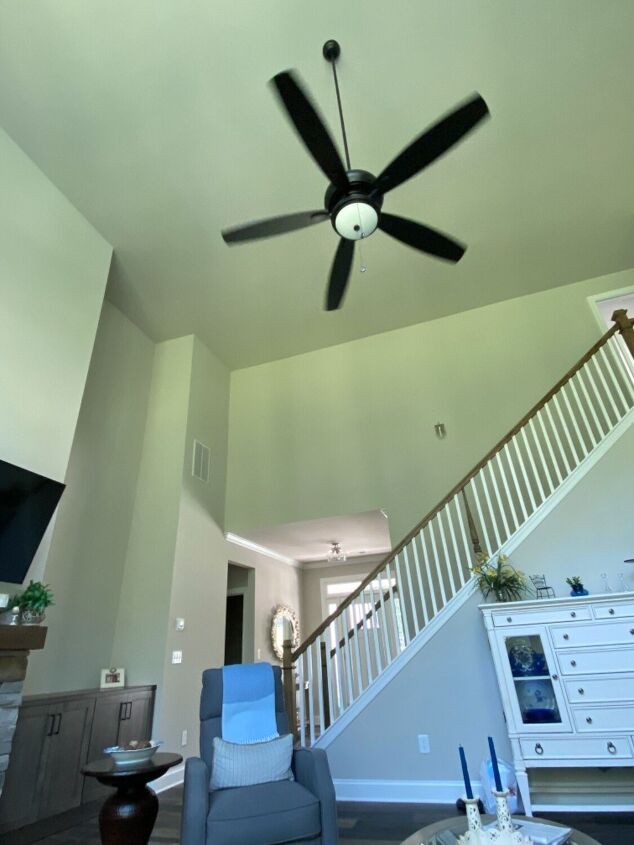

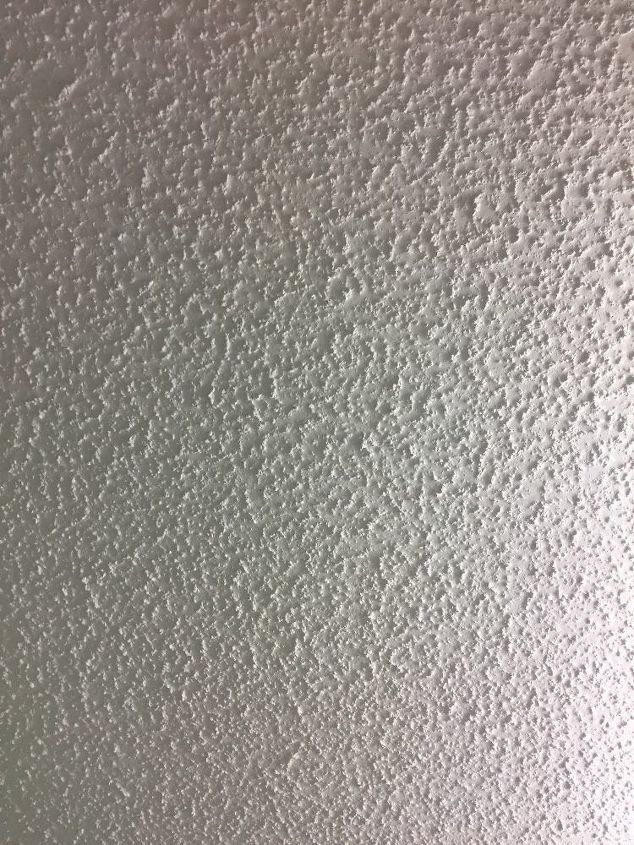
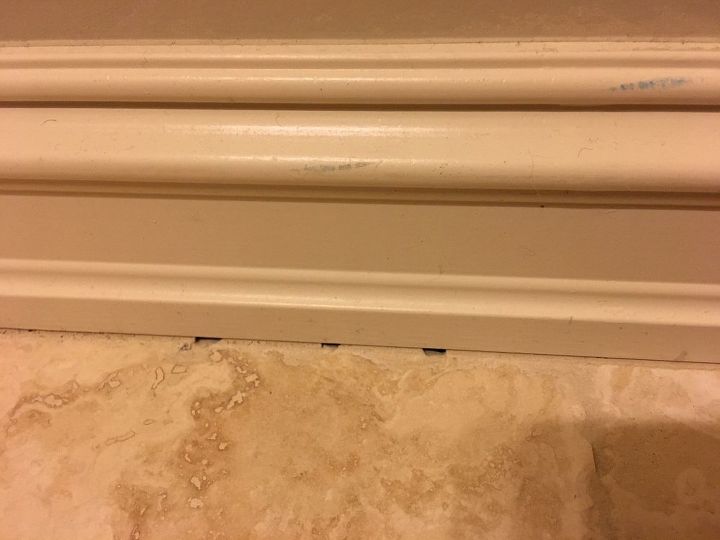
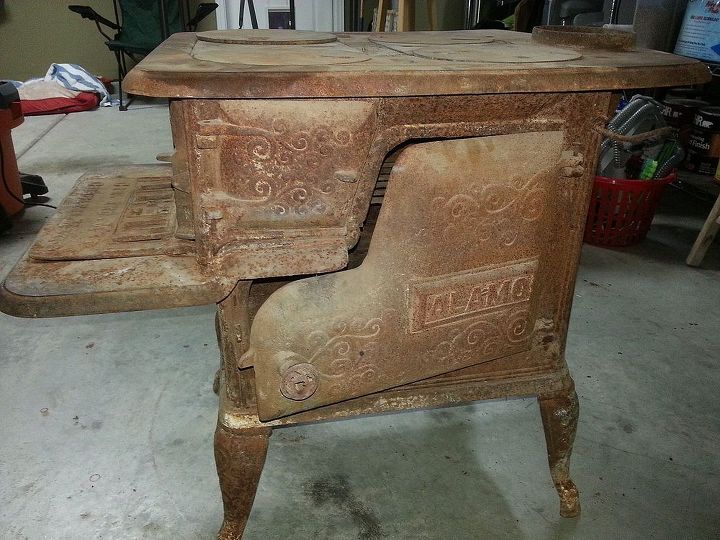
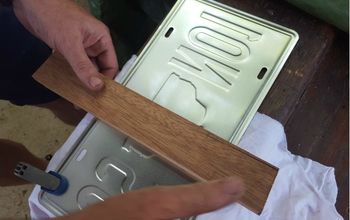
This is a tough one!
Ceiling fans have the ability to reverse direction to either help heat or help cool your house by use of a button or switch, it all depends what is up there.
See this link:
https://www.msn.com/en-us/news/technology/the-amazing-ceiling-fan-trick-you-need-to-try-this-summer/ar-AAKWs2S
Also, what is the thermostat set at as of where you live? It maybe set too low and the spinning blades make the temp drop further, take a look at that and see if you can compromise there, even a degree or 2.
Do you have zones in your house for heating and cooling, that may be another source of where to look and adjust.
As an aside, have you had your A/C unit checked out to see if it is operating properly at the assigned temperature? You could purchase an independent thermometer (get a good 1) to see what the temperature actually is inside in your living area, it can be carried from room to room.
Maybe consider setting up an acceptable range for the temperature.
Best to you.
The ceiling fan circulates the air in the room whether the heat or AC is on or off. In the summer heat rises to the high ceilings and hangs there causing the AC to run more and harder. The ceiling fan pushes the hot air down during the summer to blend it with the cool air from the AC. Reversing the fan in the winter pulls air up to blend it with warm air. It has nothing to do with the raising or lowering the temperature in the living space. it is true that blending the air, since warm air rises and cool air falls, makes the space more comfortable and can save energy because the AC or furnace won't have to run as often and work as hard. The setting on your thermostat regulates the temperature not the fan.
Your thermostat may be set too low that is why your cold. Or the thermostat may be faulty. Check what the thermostat temperature is set on and compare that to what the temperature in the room is. If both are within 2 degrees the thermostat is fine and just adjust the temperature for your comfort. If the temperature is off by more than 5 + degrees then replace the thermostat. I have my three ceiling fans running at low speed all year round. I just reverse the rotation for the change of seasons.
Here's a post that might help - https://ygrene.com/blog/property-improvements/energy-saving-ceiling-fans-fact-or-fiction#:~:text=Good%20AC%20Supplement-,Fact.,with%20an%20efficient%20air%20conditioner.&text=In%20turn%2C%20the%20air%20conditioner,bills%20could%20be%20lower%20overall.
Contrary to popular belief, your ceiling fan doesn’t actually keep your house cool. Instead, it helps keeps the air in your home from stagnating. When you run your ceiling fan, you benefit from the breezy sensation as much as you do the constant redistribution of warm and cool air throughout your home.
It’s tempting, with that in mind, to leave your fan running for an extended period of time. After all, if you’re living through the dog days of summer, you’re going to want to keep your home as comfortable as possible. Unfortunately, it can be dangerous to leave your fan running continuously.
Can A Ceiling Fan Overheat?
If you leave your ceiling fan on for an extended period of time, it can begin to overheat. The moving parts that make up your fan will generate friction with one another, even if they are well-oiled. That friction, in turn, can release as heat. While the heat alone isn’t immediately dangerous — though it can cause significant fan damage in the long-run — it becomes a more concerning force when paired with unique conditions throughout your home.
An overheating ceiling fan can cause unexpected damage in homes that find themselves contending with:
Dust Build-Up
If you don’t make a point of cleaning your ceiling fan on the regular basis, then it’s going to collect dust, dirt, and all of the other grime that makes its way into your home. While a little bit of roughage isn’t going to cause your fan any harm, an extensive build-up may.
Dust bunnies and their ilk are flammable. If your ceiling fan starts to overheat, these materials may catch a spark and eventually spread flames to the whole of your home. By cleaning your fan regularly, you’re not only keeping your home clean but also preventing potential fire damage.
Flammable Accessories
If you’re recently thrown someone a birthday party, or if you’re the type to get creative with your home decor, then you may have accessories like streamers or beads hanging from the blades of your ceiling fan. While these accessories can add some pop to the room, they are also a fire hazard. You’ll want to remove these items as soon as possible or, at a minimum, refrain from running the fan while they’re in place.
Improper Maintenance
Your ceiling fan may require more regular maintenance than you might anticipate. While basic maintenance, like cleaning the blades, may seem straightforward, different ceiling fan brands may require specialized maintenance if they’re going to continue working properly.
How Can You Prevent A Ceiling Fan From Overheating?
All ceiling fans do get warm from time to time. The motors used to power these fans will naturally generate heat even as the fan blades themselves work to keep your home cool. It’s only under certain circumstances that a ceiling fan’s heat can transform into a dangerous force.
There are some steps you can take, however, to prevent your fan from overheating even during average, non-consecutive use. These include:
Is It Safe To Leave Fans On All The Time?
In general, it’s not a good idea to leave the fans in your home on all of the time. However, do note that higher-quality fans or fans that have recently been cleaned pose less of a risk to the overall safety of your home. If you have the time, you may want to look over the overall security, make, and cleanliness of your fan before operating it for an extended period of time.
I'm sorry this is such a struggle for you. My husband runs floor fans all the time and I freeze, so I feel your pain. I ask him to move it or turn it down which he does, but most times I live under blankets which doesn't bother me personally.
Fans are terrific for circulating air around and easing the burden on HVAC systems as well as your utility bills. Maybe you can come to a compromise to have the fan on and off at certain times or change the fan speed.
Although running a ceiling fan may help reduce the amount of time that you need to run a A/C in a home, there are many more factors that can contribute to possible $ savings.
Here are a few considerations:
How old is the fan, and how many watts of energy does it take to run?
Do you pay different electricity rates during different times of the day?
How frequently do you run heat-emitting appliances, such as the oven, during the hottest times of the day?
Does the home have sufficient cold air return vents for the sq ft and ceiling heights?
How efficient are your window coverings at insulating the windows from heat coming in?
Do you close and open your window coverings throughout the day according to direct sunlight?
What if you put it with a timer .
Yes
Florida Power & Light - FPL, sends out information with the bill and posts online. According to FPL, when you leave the room, the fan should go off. They say a fan makes it more comfortable for humans, but does not in fact cool the air. Personally, I feel it does cool the air, but tomato tomata. You can search the FPL website or your own electric company’s site, to see in print, that the fan should not be left on.
This is great news! My husband can see how horribly sick this cold air has made me and has agreed to leave the fan off. If he didn’t agree, I was going to turn it off every time he turned it on. Thx!